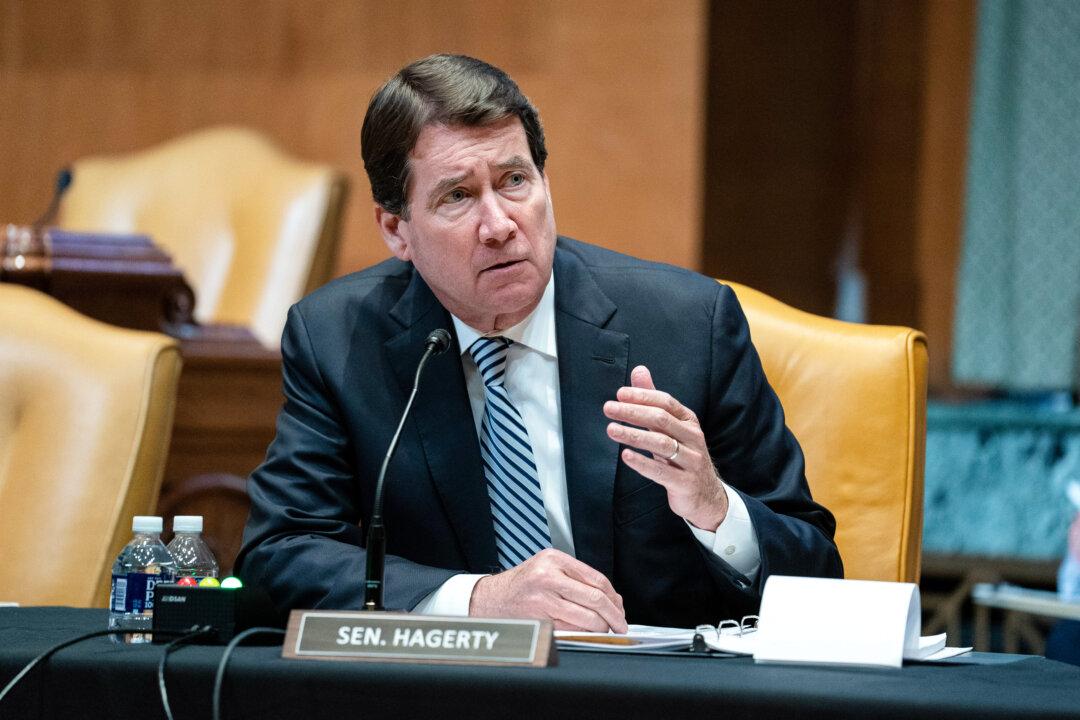A group of Republican senators are looking to crack down on clandestine, foreign influence in American politics.
On April 17, Sen. Bill Hagerty (R-Tenn.) introduced the Preventing Foreign Interference in American Elections Act in the Senate. The bill, according to a release from the senator’s office, would limit the influence of money on politics.





